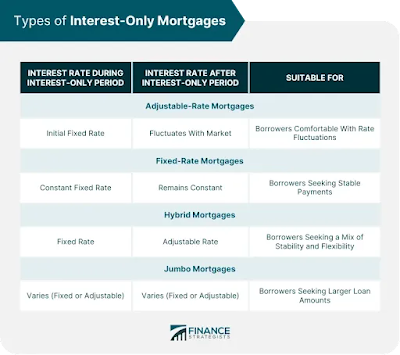Are you considering purchasing a new home or refinancing your current mortgage? If so, you might have come across the term "Adjustable-Rate Mortgage" (ARM). At our company, we understand the complexities and nuances of various mortgage options, and we're here to provide you with a comprehensive guide on everything you need to know about adjustable-rate mortgages. Let's delve into the details and clarify the ins and outs of this intriguing mortgage option.

Understanding Adjustable-Rate Mortgages
An adjustable-rate mortgage (ARM) is a type of mortgage where the interest rate is not fixed but fluctuates based on specific financial indexes. These indexes might include the Treasury bills, Cost of Funds Index (COFI), or London Interbank Offered Rate (LIBOR). Initially, the interest rate is typically lower than that of a fixed-rate mortgage, making it an attractive option for borrowers who expect their income to increase or plan to sell the property before the initial fixed-rate period ends.
How Does an Adjustable-Rate Mortgage Work?
When opting for an ARM, it's crucial to comprehend how the interest rate changes and the impact it might have on your monthly payments. Typically, ARMs consist of two periods: the initial fixed-rate period, during which the interest rate remains constant, followed by the adjustable-rate period, where the interest rate fluctuates based on market conditions. It's imperative to be aware of the periodic and lifetime caps, which limit how much the interest rate can increase over time.
Pros and Cons of Adjustable-Rate Mortgages
The Advantages
- Initial Lower Rates: One of the primary benefits of an ARM is the lower initial interest rate, allowing borrowers to enjoy lower monthly payments during the initial fixed-rate period.
- Short-Term Ownership: If you plan to own the property for a short duration, an ARM might be a favorable option, as you can benefit from the lower initial rates without being exposed to the potential rate fluctuations in the long term.
The Considerations
- Rate Fluctuations: The main drawback of an ARM is the uncertainty surrounding the fluctuating interest rates, which can lead to unpredictable changes in your monthly payments.
- Risk of Higher Payments: After the initial fixed-rate period, if the interest rates increase significantly, your monthly payments might rise, potentially causing financial strain.
Is an Adjustable-Rate Mortgage Right for You?
Determining whether an adjustable-rate mortgage is suitable for your financial situation requires careful consideration of various factors, including your long-term homeownership plans, risk tolerance, and current financial stability. It's essential to assess your ability to manage potential increases in monthly payments and to be prepared for the possibility of higher interest rates in the future.
Comparing Adjustable-Rate Mortgages with Fixed-Rate Mortgages
Advantages of Fixed-Rate Mortgages
- Predictable Payments: With a fixed-rate mortgage, your monthly payments remain consistent throughout the loan term, providing you with financial stability and predictability.
- Protection from Rate Changes: Regardless of market fluctuations, your interest rate remains unchanged, shielding you from sudden increases in monthly payments.
Benefits of Adjustable-Rate Mortgages over Fixed-Rate Mortgages
- Lower Initial Rates: ARMs often come with lower initial rates compared to fixed-rate mortgages, enabling borrowers to save money during the initial period.
- Short-Term Ownership: If you plan to sell the property before the adjustable-rate period begins, an ARM might be a more cost-effective option, as you can benefit from the lower initial rates without being exposed to potential rate increases.
The Key Considerations for Choosing an Adjustable-Rate Mortgage
When contemplating an ARM, it's essential to consider the following critical factors:
- Market
Conditions and Projections: Analyze the current market conditions and
consult with financial experts
to understand the potential trajectory of interest rates in the future. - Personal Financial Stability: Evaluate your financial stability and assess whether you can manage potential increases in monthly payments in the event of rising interest rates.
- Long-Term Homeownership Plans: Consider your plans for the property. If you intend to reside in the home for a short duration, an ARM might align with your objectives more effectively.
Final Thoughts
In conclusion, an adjustable-rate mortgage can be an attractive option for certain borrowers, particularly those who plan to reside in a property for a short period and are comfortable with the potential fluctuations in interest rates. However, it's crucial to conduct thorough research, consult with financial advisors, and carefully assess your financial capabilities before making a final decision.



